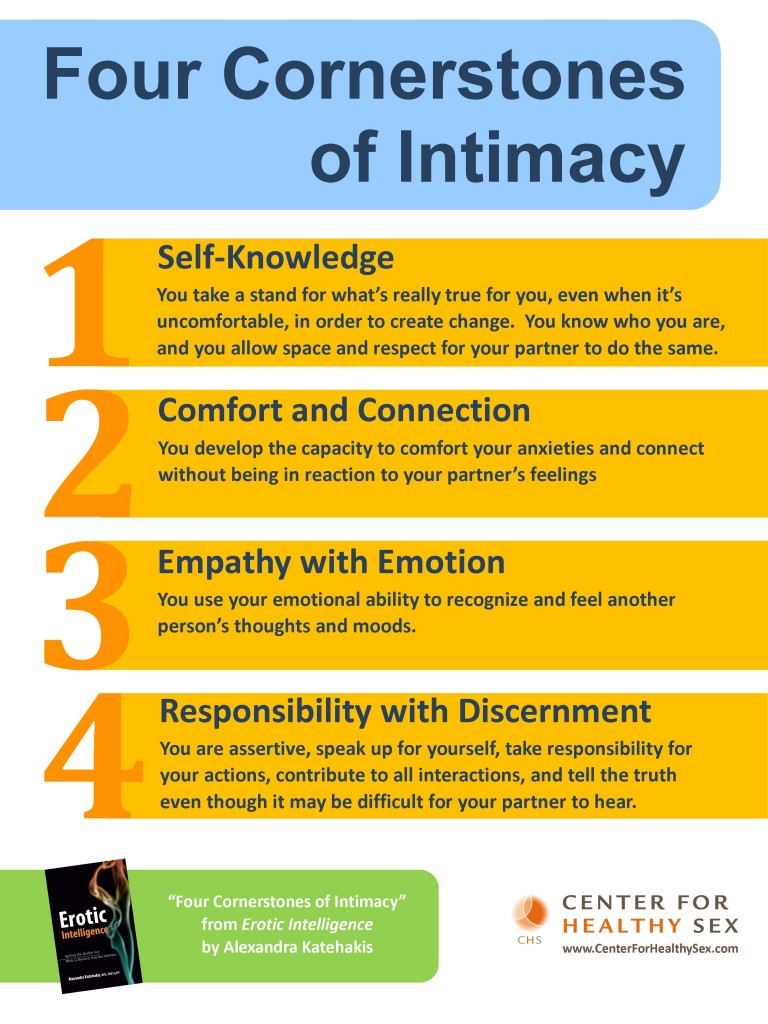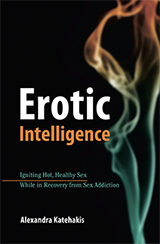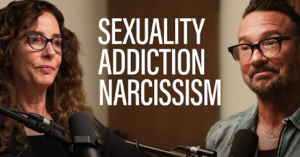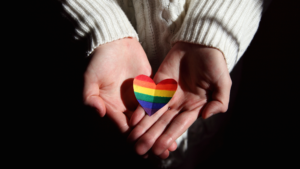Erotic Intelligence:
Igniting Hot, Healthy Sex While in Recovery from Sex Addiction
“I consider this book a great gift to all recovering addicts and their partners who will benefit from its instruction and an impressive, effective resource for those who help them.”
– Patrick Carnes, Author Out of the Shadows
In the journey to sexual sobriety, many sex addicts find themselves wondering, “How am I going to have a normal relationship?” or “Will it be possible to repair my marriage now that I’ve confessed my destructive behavior?” and “Will I ever have great sex again?” As a sex, marriage, and family therapist, Alexandra Katehakis has a program for sufferers and their loved ones that will help them hone their erotic intelligence by making sense of the past, creating healthy habits in the present, and looking toward a more intimate and spiritual relationship that nurtures honesty and closeness. With Katehakis’s help, sex addicts can get in touch with their healthy sexual side—and when they are ready, be able to embrace true intimacy and acceptance in themselves and in their mates.
Possessing erotic intelligence, you now have the ability to make sexual choices that affirm life in healthy, imaginative, and exciting ways. One of the great challenges of living a recovered life is to experience this kind of sex with a partner with whom you feel safe, secure, and connected while revealing the depths of your erotic, sexual self. You’ve come this far. You have what it takes.
“My partner, a sex addict in recovery, and I, co-addict and co-dependent in recovery, have both read Alex Katehakis’ book and have been doing the exercises therein, have found it very helpful, helping us TALK about our sexual needs and values, techniques, likes, dislikes. It’s hard work but so NECESSARY.”
– Mitchell V., from Santa Barbara

Grief and love become inextricably bound together as you admit to yourself who you are and who your partner is, and that your body is changing, your looks are fading, your children are aging, and your parents are dying. Moving into your eroticism as an adult requires a reality check, because you have to let the fantasy of storybook love and movie like sex die. On the other hand, adult eroticism allows for ongoing exploration of what love means to you and who you are sexually.
“Alex Katehakis is a shining star in the field of sexual addiction recovery. Erotic Intelligence is a welcome resource for people in the advanced stages of healing from sexually addictive and compulsive behavior.”
– Wendy Maltz LCSW, DST, coauthor of The Porn Trap: The Essential Guide to Overcoming Problems Caused by Pornography.
“Erotic intelligence provides couples healing from the pain of sexual addiction with a roadmap to re-write their sexual story, from one of betrayal, to one of healing, and finally to one of vibrant erotic sex.”
– Stefanie Carnes, PhD, CSAT; Author of Mending a Shattered Heart: A Guide for Partners of Sex Addicts

Alexandra Katehakis
Erotic Intelligence – An Overview, By Chapter
- Chapter 1
The Dance of Intimacy and Sexuality - As a therapist working with clients recovering from sexually addictive behaviors, I’ve noticed how scared people are to approach having sex again after treatment. Often they have lost touch with themselves. Clearly, one of the most difficult things for people in recovery from sex addiction is discovering what intimacy really means.
- Chapter 2
Cutting New Grooves - Creating new behaviors that enhance your relationships require that you “cut new grooves” in your brain, like grooves that were once cut into old-fashioned phonograph records. No, grooves are not literally cut into a person’s brain, but this image metaphorically describes how new behaviors will become second nature to you.
- Chapter 3
What’s Love Got To Do With It? - This chapter explains how we are wired for love, and yet how easily we can be hijacked into loving delusions. Love—as many have lived, dreamed, and romanticized it—isn’t what we think. Actually, love isn’t always what we feel either.
- Chapter 4
Nourishment for Sumptuous Sex - Let’s face it, the healthier your body, the better sex you’ll have; the more mindful you become, the more present you can be; the more aware of your feelings and responses, the more watchful you will be to avoid becoming addicted again. Knowing yourself intimately makes you better aware of your feelings and clearer in your expressions now that you’ve moved through the old story of who you were as a sexual addict.
- Chapter 5
Conscious Connection in Coupleship - Coupleship is generally defined as a twosome; in this book, the term refers to two adults who decide to be in relationship with each other through commitment. Each chooses fidelity to move deeper into intimacy. Fidelity implies faithfulness, loyalty, and support to one’s partner. In this case, it also refers to one’s sexual partner.
- Chapter 6
Down to the Nitty Gritty - If you’re the partner of a sexually addicted person, you’ve been through a major betrayal and have heard your partner disclose all of his or her sexual acting-out behaviors. You’ve experienced a recovery process and are moving toward forgiveness. If you are the sex addict, you’ve written a letter of atonement or restitution to your partner (who has accepted it), and you’ve gone through your own recovery.
- Chapter 7
Integrating Healthy Lust and Love - Chapter 8
Pillow Talk and Much More - Pillow talk brings you to a deeper level of risking and exploring boundaries. Imagine you and your partner are awake in the early-morning hours before the busy day starts, or you’re lying together in the late-night hours before slumber sets in. Your quiet privacy presents a good opportunity for pillow talk—straightforward, honest sharing and heartfelt discussions.
- Chapter 9
The Essence of Eroticism - During your addiction, sex had become a numbers game, a function of chasing novelty to stimulate the brain and rid yourself of anxiety. But sex is now about inviting a kind of nervous excitement, not rushing to cover it up or push it away. Accept that part of your adult sexuality and recognize it as the engine that arouses you and your partner.
- Chapter 10
Role-Playing and Fantasy - Erotica happens when you’ve self-differentiated, you’re allowing your heart and soul to be your guides, and you and your partner resonate as one. At this stage, role-playing can be delightful when the use of fantasy includes each other. Fantasy is healthy, especially now that you and your partner have learned to trust yourselves and each other. Remember, healthy sex means fantasy does not involve shame, abuse to yourself or your partner, avoidance of feelings, or emotional disconnection from your partner.
- Chapter 11
Spiritualizing Sex - People speak of spiritual sex as an act unto itself, to be experienced and cherished. Yet spiritualizing sex is actually a movement of energy—feeling and emotion—that rises within you and moves into your sexual physicality as an alive, tender, erotic, or passionate expression. Your bodies move without inhibition so all the energy can flow out of you and between the two of you. You allow spiritual energy to express its dance through you.




